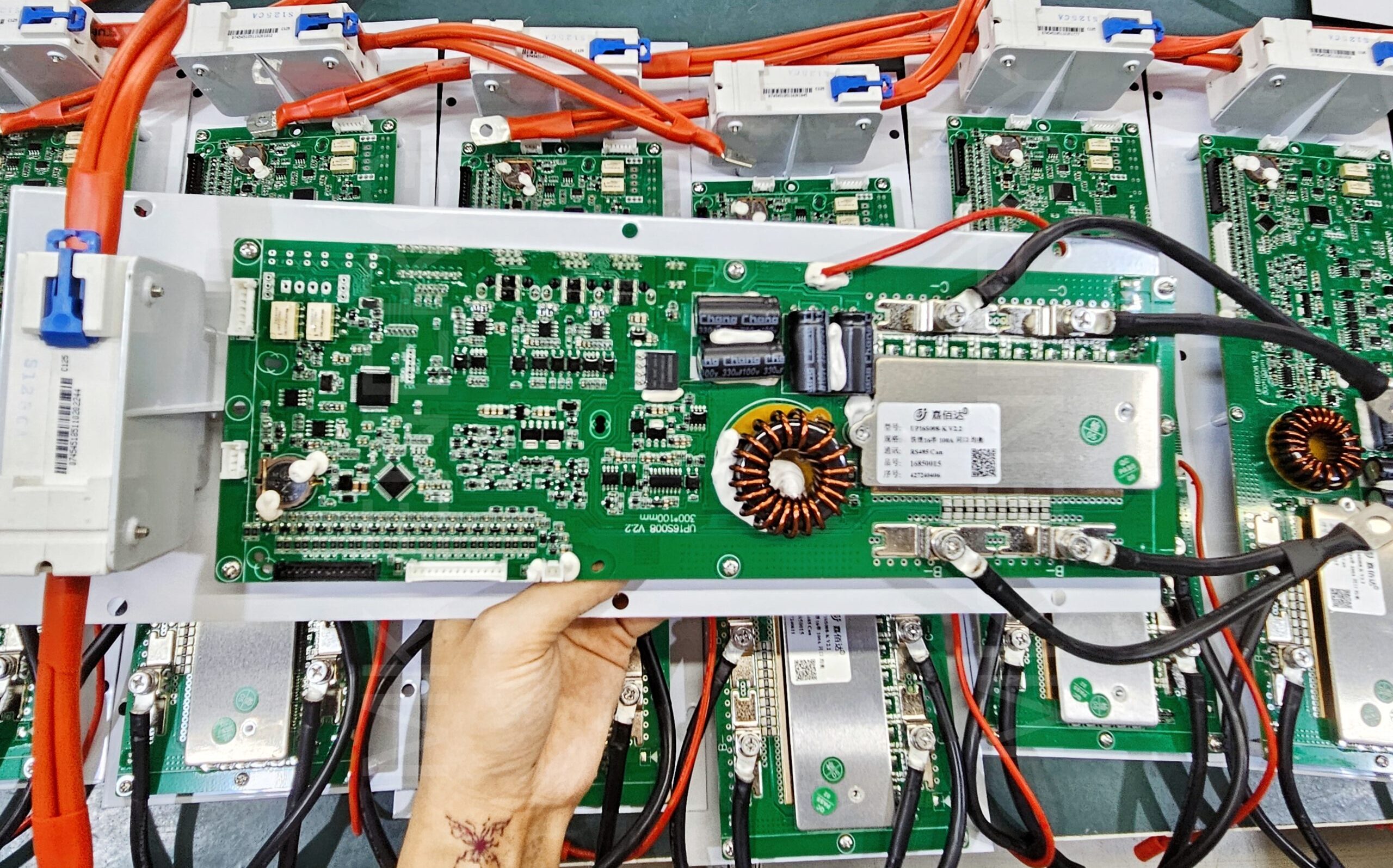In the realm of energy storage and battery technology, Battery Management Systems (BMS) play a crucial role in ensuring the efficiency, safety, and longevity of battery packs. As renewable energy sources like solar and wind become increasingly integrated into our power grids, understanding the importance of BMS is essential for optimizing the performance of energy storage solutions.
What is a Battery Management System (BMS)?
A Battery Management System (BMS) is an electronic system that manages a rechargeable battery (cell or battery pack), such as by protecting the battery from operating outside its safe operating area, monitoring its state, calculating secondary data, reporting that data, controlling its environment, and balancing it. The BMS is the brain behind the battery pack, responsible for its optimal operation and ensuring safety.
Key Functions of a BMS
Safety Monitoring
The primary function of a BMS is to monitor the safety of the battery pack. It keeps track of various parameters such as voltage, current, and temperature to prevent conditions that could lead to battery failure or hazardous situations like overheating, overcharging, or deep discharging.
State of Charge (SOC) Estimation
SOC is a measure of the remaining capacity of the battery, usually expressed as a percentage. Accurate SOC estimation is crucial for predicting battery life and ensuring efficient energy usage. The BMS uses sophisticated algorithms to provide real-time SOC data.
State of Health (SOH) Monitoring:
SOH indicates the overall condition of the battery and its ability to deliver the specified performance compared to when it was new. The BMS tracks degradation over time, helping to predict maintenance needs and extending the lifespan of the battery.
Cell Balancing
In multi-cell batteries, it is vital to ensure that all cells are equally charged and discharged. Cell balancing helps maintain uniformity among cells, preventing overcharging or undercharging of individual cells, which can lead to reduced performance or failure.
Thermal Management
Managing the temperature of the battery pack is essential for maintaining performance and safety. The BMS controls cooling systems to dissipate heat generated during operation, ensuring the battery operates within safe temperature limits.
Communication
The BMS communicates with other components of the energy storage system, such as inverters and energy management systems (EMS). It provides essential data and status updates to optimize the overall performance of the energy storage solution.
Importance of BMS in Energy Storage Systems
Enhanced Safety
The foremost importance of a BMS is ensuring the safety of the battery pack. By continuously monitoring and managing critical parameters, the BMS prevents dangerous conditions that could lead to thermal runaway, fires, or explosions.
Prolonged Battery Life
A BMS helps in extending the life of batteries by preventing overcharging, deep discharging, and maintaining optimal operating conditions. This not only enhances the reliability of the energy storage system but also reduces the total cost of ownership.
Improved Performance
With accurate SOC and SOH data, the BMS ensures that the battery pack delivers optimal performance throughout its lifecycle. It enables efficient energy management, ensuring that the stored energy is utilized effectively.
Cost Efficiency
By extending battery life and improving performance, a BMS contributes to significant cost savings. It reduces the need for frequent replacements and maintenance, making energy storage systems more economical in the long run.
Integration with Renewable Energy: As the world shifts towards renewable energy sources, the role of BMS becomes even more critical. It ensures that energy storage systems can reliably store and deliver energy from intermittent sources like solar and wind, stabilizing the power grid and supporting the transition to a sustainable energy future.
Conclusion
Battery Management Systems are indispensable in the modern energy landscape. They not only enhance the safety and performance of battery packs but also ensure their longevity and cost-effectiveness. As MK ENERGY continues to innovate in the field of lithium battery packs and energy storage solutions, understanding and leveraging the capabilities of BMS will be key to driving the adoption of renewable energy and building a sustainable future.


-scaled-e1722825099737.jpg)
